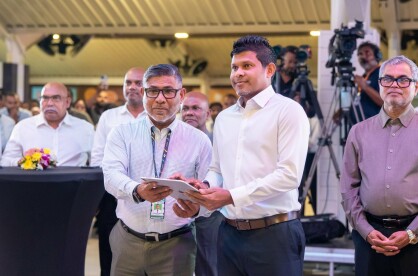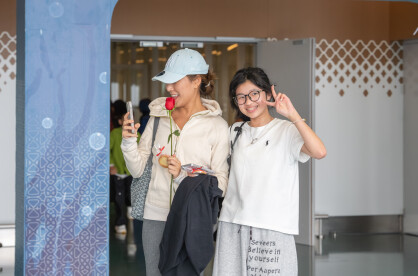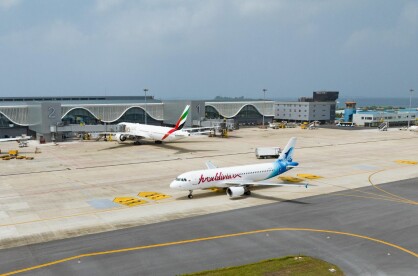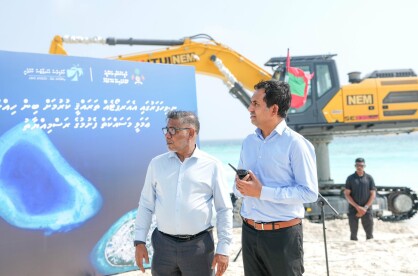When commercial tourism was first established in the Maldives, Alif Alif Mathiveri was one of the pioneering islands taking part in what would become a billion dollar industry. However, seeing the images of Casa Mia Maldives lying derelict, on top of an immensely delayed clean water and sewerage project, and stark difference between Mathiveri and other guesthouse oriented islands in terms of development and income, one begins to wonder where it all went wrong.
Historically Alif Alif Atoll and Malé Atoll (Kaafu Atoll) had brought in the most revenue for the nation since the late seventies. Tourism hit a boom and has only been growing ever since, yet the people of Mathiveri feel like their prospects have not improved from what it was before. With multiple resorts operating at nearly full capacity in the near vicinity, such an island is at a prime location to entice either excursion visits or their own travellers in droves, much like what is being enjoyed by Maafushi and Ukulhas. Delve into the reality of the issue a little further and certain red flags start showing.
The sewerage development project was one that had been started late into the Yameen administration, and allegedly due to the political polarity the project has still not reached completion. A small island of roughly more than 900 residents, the political conflict is understandable but that getting in the way of opportunities for residents is unacceptable. When inquiring as to whether it was this governmental neglect over the decades that has left the economy stagnated, the people actually look inwards as well.
As the hospitality industry bloomed five decades prior, there was an abundance of growth and enough to go around. This brought about a sort of complacency due to the economic boost, and decades later, this complacency brought about deterioration unforeseen. When the youth of Mathiveri were striking out for hospitality employment in other, newly developing resorts, similar aged youth from other islands were there albeit with different educational foundations. Most of them had GCSE qualifications, allowing them to secure management level positions, while those from Mathiveri did not have that privilege.
The lack of development in the education sector was just the tip of the iceberg. Although in the past two decades education has been elevated to a general standard, the delay has set an inequitable foundation, leaving the people of Mathiveri trailing behind other islands in terms of development. With the advent of guesthouse tourism in the Maldives, they once again had a chance to step out of the mire of complacence, but even then they seem to lag behind.
Ukulhas is an island with over 1,000 residents, and they proudly boast over 30 functioning guesthouse establishments. Mathiveri has only one third that number thus far. Visitor reviews describe how other islands such as Rasdhoo and Ukulhas in the same atoll provide a lot more affordable services as well as bigger tourist areas such as bikini beaches and the like, while in Mathiveri the designated areas are small and there aren’t enough eateries to warrant mention.
Furthermore, one of the most successful ventures, the aforementioned Casa Mia Maldives, now lies derelict and abandoned, permanently closed according to Google reviews, since 2018. A guesthouse of over 24 rooms and much more accommodations, this establishment alone could facilitate over 30 or more employment opportunities, yet after Abdhullah Jabir, prolific businessman and outspoken parliamentarian, took over, the establishment had its doors closed for over four years.
The people admit with disappointment that there isn’t as much cohesion as there should be in the guesthouse industry of Mathiveri. For such an island, lessons can be learnt from other similar islands, where the accommodation establishments and recreation centres work together with tour operators to market their products in bulk.
With local governments and attempts at decentralised governance, the community had managed to work together in rebuilding a safer, cleaner society. Crime is at a record low compared to other islands, and the people work together on projects and recurrent island upkeep, such as cleanups and societal development. The local council had achieved third place amongst all other local councils in the year 2019 in terms of efficiency and performance, on the performance index, yet they are still held back by mishandled opportunities.
The lack of proper decentralisation is the main restriction Mathiveri is facing now. Unable to manage and earn their own finances meant the councils had to depend on constant back and forth with the central government in order to implement further development projects. The local council stands to earn hundreds of thousands in income per month if they are given the autonomy promised in a proper decentralised system, through land rent and further international investment into the local tourism.
Furthermore, the nearby resorts could step up their CSI further not just assisting in infrastructure development, but also the development of human capacity. The experiences that certain citizens had earned while under resort employment has been what proved most helpful in letting them take effective leadership to bring the Mathiveri community to the level it is today.
Women empowerment is also exemplary, with support given to women entrepreneurs in terms of space for businesses and constant involvement in island upkeep, with some women earning MVR2,000 - 4000 per month just by committing to island cleanups. Mathiveri boasts the cleanest streets and beaches in the region, and they intend to keep it that way.
Creating better, more equitable, opportunities for the island is not only a responsibility of the government, but Mathiveri is also a lesson for other developing islands. They have been building strong foundations today having being dealt the fruits of their complacency of yore, and their close knit community is far from the picture of political hooliganism that once plagued their shores a few decades ago. They recognise the need to take care of themselves, work together, and build better to lift themselves up from the situation they have found themselves in.
And, with the legacy left by the last local council, there is hope. Mathiveri could once again climb to the helm of local tourism and economic development — but only if the Solih Administration puts into action the plans they have made regarding decentralisation and allow local governments more autonomy on earning and spending.






